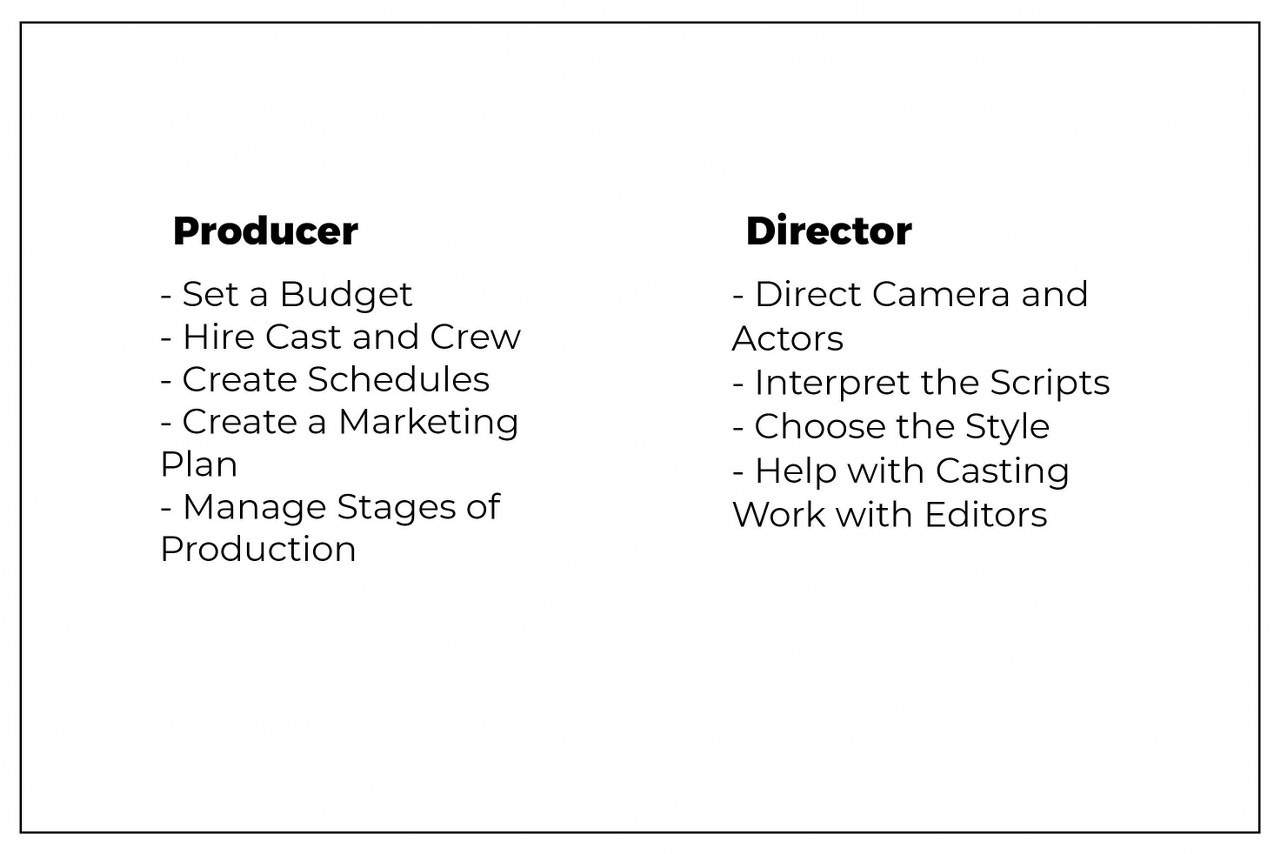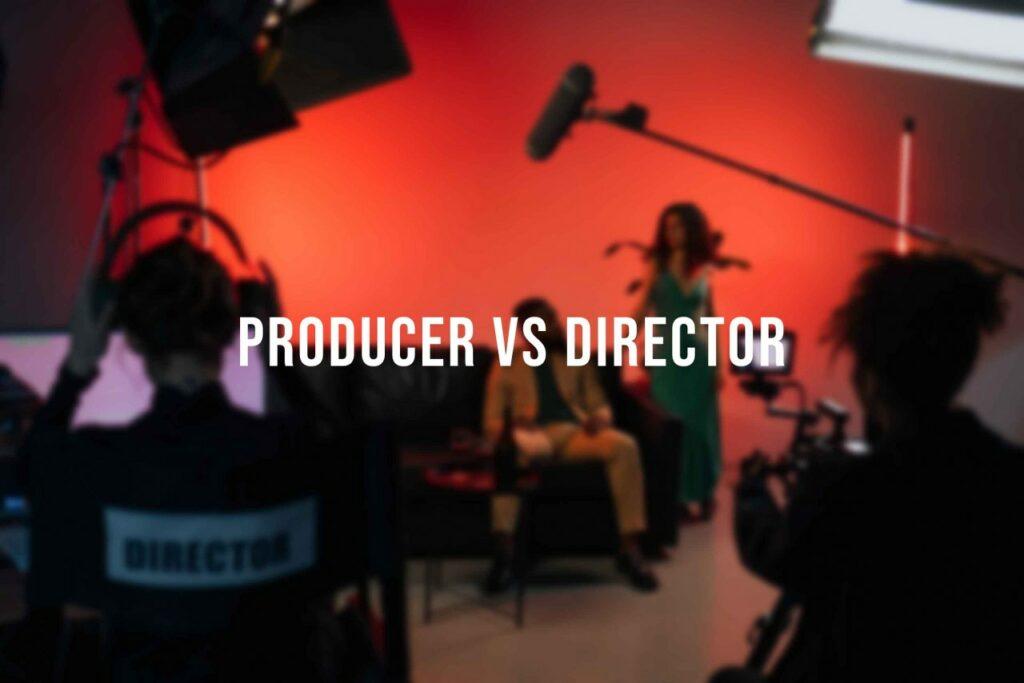In the world of filmmaking, the roles of a producer vs director are often mistaken as one and the same. But as any true film enthusiast knows, these two positions play a unique and vital role in bringing a film to life. The producer and the director are the driving forces behind the creative process, and understanding the differences and similarities between them is crucial to understanding the art of filmmaking itself.
As a filmmaker, I have always been fascinated by the interplay between these two roles. The producer and the director are like two sides of the same coin, each with their own distinct responsibilities and duties. But together, they form the backbone of the filmmaking process, and without their collaboration, a film would never reach its full potential. In this blog post, we will delve into the intricacies of these roles and explore how they work together to create cinematic magic.

What Does a Film Producer Do?
When it comes to filmmaking, the producer is the unsung hero of the process. They are the ones who take on the financial and logistical responsibilities, making sure that everything runs smoothly behind the scenes. They are also responsible for securing funding for the whole project, hiring of the crew, and making sure that the budget is adhered to. A good producer not only is responsible for keeping the film project afloat, but they also have a vital creative role to play in the whole process.
A good producer is a visionary, someone who can see the potential in a script and knows how to turn that potential into a reality. They are the ones who have the ability to take a project from an idea to a finished film, and they do it all while keeping an eye on the bottom line. They are the ones who make the tough decisions, the ones who keep the film on track and on schedule.
In short, a producer is the backbone of the filmmaking process, the unsung hero who makes sure that everything runs smoothly and that the film reaches its full potential.
What Is a Film Director?
What Does a Film Director Do?
The director is the captain of the ship, the one who steers the creative vision of a film. They are the ones who interpret the script, bringing the words to life on the big screen. They usually work closely with the actors, bringing out their best performances. They shape the look and feel of the film, choosing the right lenses, camera angles, and lighting while also making the final call on every creative decision.
A good director is a storyteller, someone who can take an audience on a journey, immersing them in the world of the film. They are the ones who can take the audience on an emotional journey, making them laugh, cry, and feel every emotion in between. They are responsible for turning a script into a cinematic masterpiece.
In short, the director is the creative force behind a film, the one who brings the script to life and shapes the audience’s experience. Without a good director, a film would be nothing more than a collection of words on a page and thus they are so vital to the whole filmmaking process.
Similarities and Differences Between the Producer vs Director
As someone who has always has interest in the art of making films, I have always been fascinated by the interplay that exists between the roles of a producer vs. director. Both roles are vital to the filmmaking process and they complement each other in many ways. In a nutshell, we would say these two have to work together to bring a film to life, but at the same time have distinct responsibilities and duties.
Here are some of the differences that exists between a producer and a director:
- A producer is responsible for the financial and logistical side of the film, while a director is responsible for the creative side.
- A producer will make sure that the budget is adhered to, while a director makes sure that the film is visually stunning.
- A producer is responsible for hiring the crew, while a director works with the actors to bring out their best performances.
However, there are also similarities between these two roles. Both the director and the producer have to have a vision for the film, they also have to have a passion for storytelling and lastly, they have to be able to bring their ideas to life while working under pressure.
In conclusion, the roles of a producer and a director in filmmaking are distinct, but they complement each other in many ways. Both are vital to the filmmaking process and without them, a film would never reach its full potential.

Additional Resources
As a filmmaker, I believe in the importance of continuous learning and growth. If you are interested in learning more about the roles of a producer and a director in filmmaking, there are several resources available that can provide you with more in-depth information.Here are a few books that I recommend:
- “The Producer’s Business Handbook” by John J. Lee Jr. and Anne Marie Gillen: This book provides a comprehensive overview of the producer’s role in the filmmaking process, including the business and legal aspects of producing.
- “The Film Director’s Intuition” by Judith Weston: This book is a great resource for aspiring directors. It covers the process of directing, including the use of script analysis, casting, rehearsals, and working with actors.
Conclusion
In this blog post, we’ve explored the intricacies of the roles of a producer vs director in filmmaking. We’ve also delved into the responsibilities and duties of each role while looking at how they all complement each other in the filmmaking process. We’ve also looked at the similarities and differences between the two roles, highlighting how they work together to bring a film to life.
As a filmmaker, I can attest to the importance of understanding the roles of a producer and a director in the filmmaking process. Without a good producer, a film would never get made, and without a good director, a film would be nothing more than a collection of words on a page. To cut the long story short, both of these two roles are vital to the success of a film and without their collaboration, a film would never reach its full potential.
In conclusion, I would like to stress the importance of understanding the roles of a producer and a director in filmmaking as it is a crucial step in understanding the art of filmmaking itself. I hope this blog post has provided you with a deeper understanding of the similarities and differences that exists between these two roles and how they work together to bring a film to life. Don’t forget to check out our other articles on filmmaking here!


